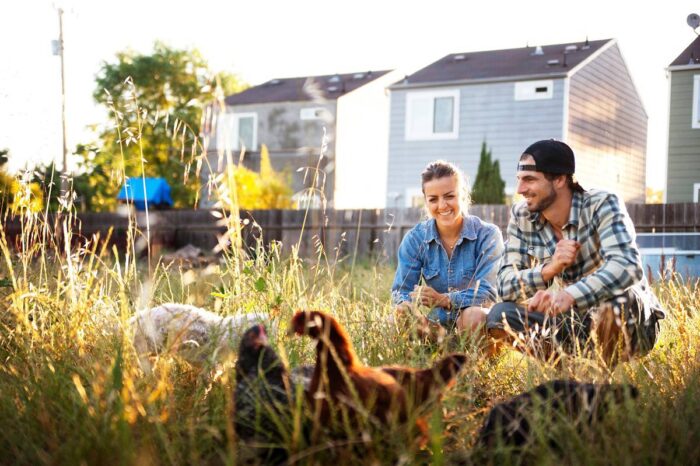A sober living home, also known as a halfway house, provides safe housing for recovering alcoholics and drug addicts. These homes are essential in addressing substance use disorders and bridging the gap between rehab facilities and permanent housing. Some private foundations provide grants for homes to help cover running costs and living expenses, but there are some government grants for sober living homes.
Nonprofit organizations play a significant role in establishing and running these sober living homes, offering both temporary housing and housing for individuals in recovery. It can be quite challenging to build a sober-living home. Occasionally, some residents in the neighborhood will not accept sober-living homes, and the extra expenses can be quite high. Sober living homes can be easier to fund than other transitional housing because they are less expensive. However, government grants for sober living homes will help reduce the cost of living for residents or even assist them with their living expenses. Here are some options available to you.
Technical assistance from community service organizations can be sought for understanding the intricacies of establishing a sober living facility. These organizations can guide on funding opportunities and provide resources for smoother operations.
Types of Government Grants Available
Sober living homes play a critical role in the recovery journey of many individuals struggling with addiction, and recognizing this, multiple tiers of government offer grants to support these establishments. At the federal level, agencies like the Substance Abuse and Mental Health Services Administration (SAMHSA) offer grants specifically tailored for addiction recovery programs. Additionally, state governments often allocate funds to bolster local sober living initiatives, understanding the nuanced needs of their specific populations. Furthermore, there are local government grants and community-driven financial initiatives that cater to the establishment and maintenance of sober housing, ensuring that these facilities are well-distributed and accessible to those in need.
Applying for Government Grants: Steps and Tips
Navigating the world of government grants can initially appear daunting for sober living homes, but with the right guidance, the process can be streamlined. First and foremost, it's essential to understand the eligibility criteria, which varies depending on the granting agency but typically requires the facility to be registered and compliant with state regulations. Housing for people with substance use disorders often needs specialized attention, and these criteria ensure the best care for residents. A thorough documentation process, including clear outlines of how funds will be utilized, is paramount. It's also advisable to liaise with similar establishments that have previously secured grants, as they can offer invaluable insights. Ultimately, while the application process may be rigorous, the potential benefits to both the facility and its residents are immeasurable, making the effort deeply worthwhile.
Sober Living Foundation
The Sober Living Foundation offers grants to help those managing sober living homes cover the cost of operating the facility. Homeowners eligible for this program will receive up to $700 per month, but reimbursements will be required for expenses. You must pay upfront for the expenses and then show proof of the expenses to the foundation to be reimbursed. Before applying for the grant, you must also enroll in a foundation-provided online course.
Alcoholics and drug addicts can regain control over their lives through the Sober Living Foundation and begin living a normal, meaningful life again. Those living in sober living homes approved by the program provide monthly expenses. Various religious organizations, benevolent and helping families, and community partners provide financial assistance to this organization.
Struggling alcoholics who wish to live a healthier and happier life can apply to the organization's sober living homes program grants to receive the monthly cash allowance needed to support themselves and their families.
Substance Abuse and Mental Health Services Administration (SAMSHA)
Substance Abuse and Mental Health Services Administration (SAMSHA) provides government grants for sober living homes. It does so through the following three programs:
- Center for Substance Abuse Prevention
- Center for Substance Abuse Treatment
- Center for Mental Health Services
There is no better place to get help from people who operate or want to start sober homes than SAMSHA. If you meet the criteria outlined above, you are eligible for grants available through these centers to halfway houses.
To apply for these grants, you will need to follow a few steps.
- Get registered on eRA Commons, Grants.gov, the Data Universal Numbering System, and System for Award Management.
- The application forms are on SAMSHA's official website, and you should submit your application at least a day before the deadline.
- SAMSHA will send you three emails: one confirmation of your application receipt, one confirmation that your application was accepted, and the last confirmation that your application has been received.
When SAMHSA receives your application, you are no longer in control. Third-party peer reviewers at SAMSHA review three emails: one confirming the receipt of your application, one confirming that your application has been accepted, and the last email confirming that you have been accepted. After all of this has been done, you must wait until the results are announced.
Community Services Block Grant
The Office of Community Services administers the Community Services Block Grant. By providing services to address areas that contribute to poverty, such as housing assistance and drug rehabilitation, a block grant funds a network of agencies to reduce poverty.
A majority of grants are distributed to the states, which allocate them to projects that improve poverty alleviation and reduce the needs of low-income residents. There are also discretionary grants that are awarded at the local level. Information on accessing this grant funding can be obtained from the Community Assistance Division of the Office of Community Services.
However, the Office of Community Services provides not only grants for sober living through community service block grants, but it also has a few other government grants for halfway houses hidden away.
United Way Community Impact Grants
Many United Way chapters in Washington D.C., Columbus, Nebraska, and northwest Florida offer Community Impact Grants. In most cases, grants are awarded for one year, but they can be renewed in some cases. Sober living homes can be started or maintained with the help of United Way. In the past, United Way has assisted nonprofits in finding organizations that support their causes, but this time, it is offering grants to nonprofit groups that benefit the community.
You will be able to find its offices in every city, county, town, and state in the United States of America as it is a national non-profit organization. You can inquire about this program from a local or visit their website to find out where the closest office is to where you live. Upon knowing where to apply, you can either go there in person or apply online along with the needed documentation and wait for your turn to be inspected.
The organization will determine the grant amount for the current year if you are deemed eligible. Check their website for eligibility requirements for the sober living homes program grants and determine for yourself whether you qualify. In addition to providing assistance to already established sober living homes, they also assist in starting a sober living home themselves if needed.
Sonora Area Foundation
Sonora Area Foundation, which provides financial aid for sober living, is another location-specific grant organization. This organization provides grants for the construction of sober living homes in Tuolumne. The amount of grants is never predetermined. There is no one size fits all grant amount for halfway houses.
In addition to directly helping the citizens, the organization collaborates with other non-profit organizations working in similar directions. Sober living programs that receive financial assistance from various organizations must have a strong sense of community support.
This organization also offers the option of starting a sober living home independently. To qualify for the grants for sober living homes, you need to gather community support and fill in the necessary information. A special committee has been set up to determine if the entire process of scrutinizing, screening, and distributing grants to eligible applicants for halfway houses is completed properly.
Frequently Asked Questions
Government grants for sober living homes are financial aids provided by federal, state, or local government agencies to support the establishment, maintenance, and operation of sober living facilities. These grants aim to bolster the recovery efforts for individuals struggling with addiction by ensuring that they have access to safe and supportive environments during their transition to sobriety.
Typically, registered sober living facilities, non-profit organizations that operate or intend to establish such homes, and sometimes even individuals or groups with a clear plan to set up a recovery residence may be eligible. However, specific eligibility criteria can vary based on the granting agency and the nature of the grant.
The Substance Abuse and Mental Health Services Administration (SAMHSA) website is an excellent place to start for federal grants. State and local government websites, as well as grant databases like Grants.gov, can also provide listings of available opportunities. Additionally, local non-profit organizations or associations related to addiction recovery might have information on grant opportunities.
Yes, most government grants come with stipulations on how the funds should be utilized. This could range from setting up infrastructure, hiring qualified staff, organizing awareness programs, or implementing specific recovery programs. It's essential to read the grant documentation carefully to ensure compliance.
Misusing funds or not adhering to the grant's terms and conditions can have serious repercussions. This might include having to repay the grant amount, being ineligible for future grants, and in some cases, legal actions. Regular audits or reviews might be conducted by the granting agency to ensure compliance.
Are you interested in learning more about different grants and programs that can help you with your living situation? Check out the rest of Gov Relations’ blog section today!







